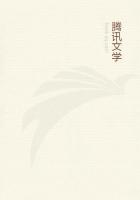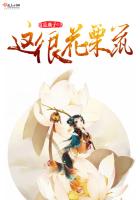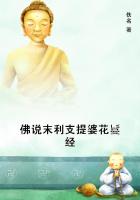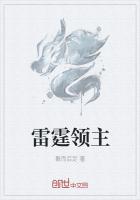The paper within the envelope had been placed far enough down so that its top part was not exposed to my view. The envelope thus appeared perfectly natural, as an ordinary one with nothing in it.
He thus held the envelope in his left hand, flap open wide, with the back side of the envelope later to be sealed, facing me. Now he really inserted my paper in this envelope with his right hand as he took it from me; but in fact, he pushed it down just behind the hidden slip of paper within the envelope. I mean that he inserted it between the concealed slip and the face or slit side of the envelope; and as he did this he caused the lower end of my slip of paper to pass through the slit in the center of the front of the envelope. The lower portion of my slip was thus out of the envelope on its rear side, between the front of the envelope and the fingers of his left hand; although I could see nothing of this.
He pushed it down so that the top still remained in view with the bent corner exposed, and then sealed the flap over it.
Holding the envelope toward the window, he called to my notice the fact that my paper was within, and that I could see it plainly. I could see the shadow of the two papers, which appeared as one, and thus his statement seemed correct. Of course he did not show me the rear side OR FACE of the envelope, with my paper protruding, which was immediately behind the duplicate, so that the shadow of it was also the shadow of the duplicate.
This shadow also hid from my view the shadow of the slit. The envelope was sealed fairly.
Now with his right hand he moved a small vessel on the table toward himself. Then taking the envelope in his right hand, slit side downward, he held it close to this vessel; at the same time with his left hand he took a match from his pocket and proceeded to burn the envelope. This move concealed the trick; and it was very deceiving and cleverly done. As he took the envelope from his left hand with his right hand, he, with his left fingers touching the protruding portion of my slip, caused it to remain in his left hand and to be drawn entirely out of the slit. His eyes followed the envelope as his right hand took it; which naturally caused my eyes to follow it, as his attention seemed centered on the envelope and it appeared to occupy the stage of action. This move was executed in a moment, not requiring any time worth mentioning, although it takes so long to describe it on paper intelligibly. Now while his eyes (and of course mine) followed the envelope, without pause his left hand went into his left pocket in a natural manner to get the match. He, of course, left my slip in his pocket with his surplus matches; and when he retired for the drink of water, he read my question.
As to the slate trick, all was fair until he picked up the top slate, wrote an automatic message, apparently read it aloud to me, and then upon my informing him that the message did not answer my question, he seemed dissatisfied, apparently erased the message, and replaced the large slate on top of the stack of slates. What he really did was to pick up the large top slate, bottom side toward himself, and at the same time to carry with it a small slate pressed tightly against its under side. He held the large slate with its under side tilted from me, so I could not see this small slate. There being so many small slates in the stack, the temporary absence of one from the stack attracted no notice.
He kept this small slate next to him out of my view, and really wrote the message on the small slate which was next to him, and which was concealed from my view by the larger slate. He did not read aloud what he had actually written, but merely pretended to do so, repeating something entirely foreign to the subject instead.
What he had written really answered my question fully. When he appeared to erase the message, his movements were but a pretense; and he did not erase it at all. When he replaced the large slate on the stack of slates, he, of course, replaced the small one which was concealed under it, message side down.
It must be remembered that the operator, at the beginning of the slate trick, first took up and examined the large slate a time or so for a message; and finding none, seemed disappointed, and finally wrote the automatic message; then on being informed that it did not apply to the case, he seemed dissatisfied and appeared to erase it.
After the message was written and the slates replaced, he examined the top slate a time or so, and even lifted off a few small slates looking for writing, but did not turn them over; then seeing nothing, he scattered the slates around on the table, leaving their same sides downward; and handing me the cover, he requested me to cover them and place my hands on them.
The trick was now practically done. As the slates had been examined so many times and nothing found on them, even after the automatic writing, the majority of persons would testify that there was positively nothing on the slates when the medium left the table. The majority of persons would never remember that he at one time wrote on the large slate and erased it. The message being on a small slate, and these being spread around, few would have known that this message really appeared on the particular small slate that was originally next the top of the stack.
Most people would have certified that they cleaned all of the slates themselves, that the medium never touched any of the small ones, and that he only laid his hands on top of the stack a few times. Some would even forget that the medium handled their writing at all before burning it.
I am sure that the nickeled tube that carried the dripping water into the space over the glass bowl, had a second tube within it; through which his assistant from the adjoining room either blew, or sent by some mechanism, the chemicals (probably potassium) that would take fire and burn on striking the water.
. . . . .















